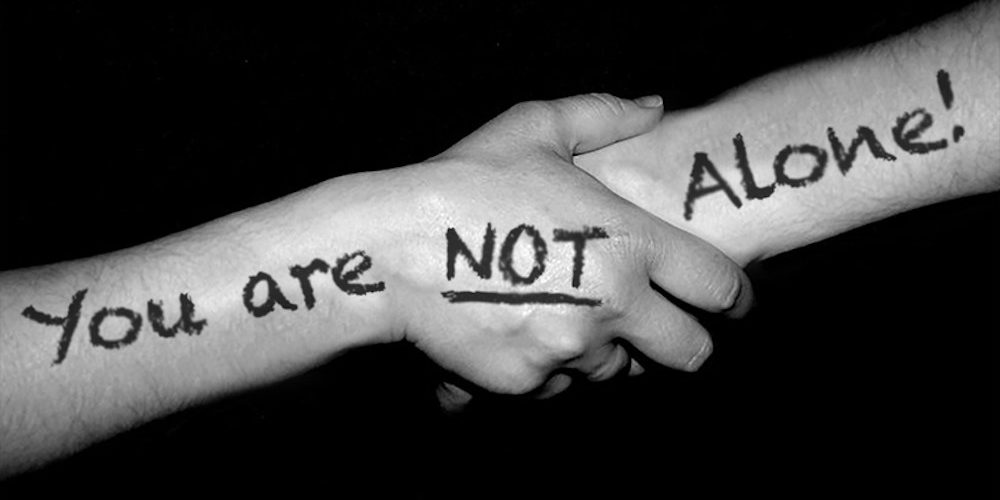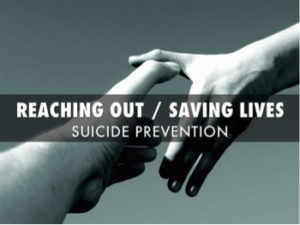Blog
Suicide Prevention Week September 9 – 15
- September 11, 2018
- Posted by: Rachel Quattrin
- Category: Mental Health Prevention Teen Tween Young Adult

Suicide Prevention Week – September 9-15
Suicide:
Thoughts of suicide are more common than you might think. Nearly everyone, at some time in his or her life, thinks about suicide. There are many reasons that people often decide to live. They may realize that the crisis is temporary, but death is not, they find people or reasons to live for, or they may decide to reach out for and get the help they need. But people in the middle of a crisis often believe they can’t escape and feel out of control of their lives. When in crisis, they can’t see any other way out, can’t stop the pain, and can’t see any possible change.
Nevada has an unfortunate reputation for suicide. In 2014, suicide was the 3rd leading cause of death for Nevada teens and young adults (between the ages of 15 and 24.) It’s also believed that for every teen that dies by suicide, between 100 and 200 teens have attempted. Previous suicide attempts are one of the largest risk factors for completing suicide. If someone you know has made an attempt before, it’s important to talk to them about suicide.
Many people believe that talking about suicide with a person might “give them the idea” and make them attempt, but that’s not the case — if they have already started showing some of the warning signs of suicide (below), suicide has already occurred to them as an option. People contemplating suicide often won’t bring it up to anyone, but if someone asks them if they’re feeling suicidal or thinking about killing themselves, it is usually a relief to be asked and makes it easier for them to talk about it. Because suicide is such a taboo topic in general, anyone who feels suicidal may struggle to talk openly about it, and without talking about it they’re more likely to complete suicide.
Speaking directly and honestly with a close friend or loved one is one of the best ways to help them work through suicidal thoughts and feelings. So remember, ask about suicide if you’re worried for someone – you won’t be “putting it in their head,” and you might save their life.
Self-Harm:
A common belief is that self-harm, like cutting, is a warning sign for suicidality. While it is concerning, unhealthy, and can be a red flag that the individual is having problems, it’s not always related to suicide. The majority of people who self-harm do it for any number of reasons, including gaining a feeling of control, releasing tension, redirecting their emotional pain, and more. Self-harming behaviors don’t necessarily indicate suicidal thoughts, but asking someone what is causing them to hurt themselves is a good first step towards helping them, whether they’re suicidal or not.
Suicide Prevention:
Be aware of the different warning signs:
- Are they talking about suicide, even jokingly?
- Do they say or seem to feel hopeless?
- Have they ever said anything like “I don’t know why I bother” or “There’s no point anyways”?
- Are they acting recklessly, like using drugs or alcohol, cutting class, driving dangerously or other risky behaviors, or doing other things they normally wouldn’t do?
- Have their emotions changed a lot, especially from happy to angry or sad?
- Are they withdrawing and cutting off friends and family?
There is a phrase to help remember some warning signs – IS PATH WARM?
Ideation
Substance Abuse
Purposeless
Anxiety
Trapped
Hopeless
Withdrawal
Anger
Recklessness
Mood Change
So how should you speak to someone who has told you that they are suicidal? There’s no rulebook when it comes to suicide, but there are some important things to remember.
- Be direct and honest about suicide. Don’t be afraid to tell them that you’re concerned about them, ask about suicide, or talk about their feelings. It might be uncomfortable, but if you can’t communicate directly, then the other person may not feel comfortable expressing themselves.
- Remember to listen, don’t just be present. This person may describe their pain, their triggers, or their general feelings. They’ve been struggling with these topics, and they need to be heard. Only speak when needed, don’t interrupt or try to minimize their feelings. Never use phrases like, “Well, at least you don’t have cancer!” or “You really don’t mean that!” That’s not helpful.
- Also, avoid giving advice — they may have already tried your solution, or won’t appreciate you trying to ‘fix’ the situation. You can always make suggestions, like ‘have you tried talking to the school counselor?’, but don’t expect them to do it unless they want to.
- Offer empathy, not sympathy. While they seem like the same word, they’re not. Empathy means truly understanding someone, putting yourself in their shoes, and trying to understand why they’re in pain. Ask yourself — “How would I feel if I was going through this?”
- Keep your statements and expressions non-judgmental. If the other person feels that you’re judging them they’re going to shut down. Your conversation needs to feel safe for the other person, so don’t make them feel like their thoughts or feelings are wrong or bad.
- Take action!! Get help from people and agencies specializing in suicide and suicide prevention.
- If your friend isn’t sure how to go about finding a counselor, involving an adult is always helpful. This can be a favorite teacher, extended family member like a grandparent, church leader, or your own parent. Seeking a counselor usually involves going through the family’s insurance plan or calling 211 for low-cost counseling.
Resources for Help:
- Suicide Hotline (1-800-273-8255) OR (Text ‘Care’ to 741741.)
- Crisis Call Center (775-784-8090) OR (Text “ANSWER” to 839863)
- 211 — Referrals to low-cost, human assistance agencies throughout the country
- American Foundation for Suicide Prevention (AFSP) (asfp.org)
- The Trevor Project-LGBTQ (1-866-488-7386)
- Children’s Mobile Crisis Response Team (Northern Nevada: 775-688-1670, Southern and Rural Nevada: 702-486-7865)
- Depression and Bipolar Support Alliance (DBSA) (dbsalliance.org)
- National Alliance on Mental Illness (NAMI) (Northern Nevada: 775-470-5600, Southern Nevada: 702-219-1675)
- Substance Abuse and Mental Health Services Administration (SAMHSA) (1-800-662-4357)
- TUFF-Interfaith Pastoral Counseling, coaching, and trauma relief (Only Southern Nevada: 702-569-9901)
Sources:
This post was written for Healthy Young NV by Crisis Call Center.

